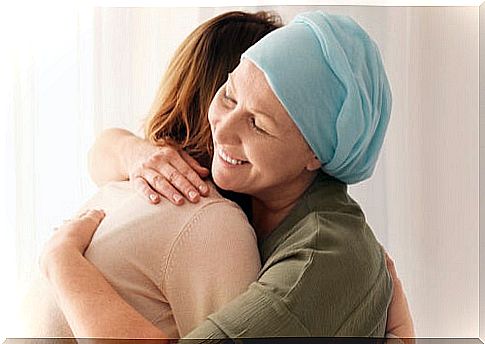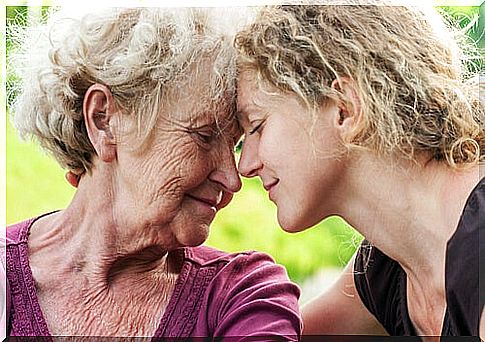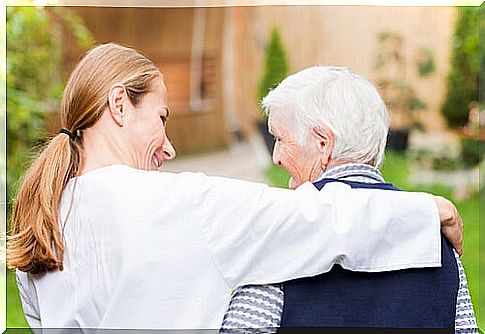Who Takes Care Of Us When We Care For A Loved One?

There are many situations in which we are forced to put aside our routine to take care of someone else. From the birth of a child, to an accident, illness or the inevitable old age, it happens in all families. Human beings are fragile and, many times, we require others to get ahead. But, what happens to us when we care for a loved one? Who takes care of our physical and emotional health?
It is always desirable and beneficial for someone from the emotional environment to take care of the dependent person. And it is wonderful when you have that possibility, instead of finding yourself in the need to delegate that care to a stranger. However, becoming the primary caregiver for another human being can be a real challenge.
When we care for a loved one, suddenly, our entire routine changes. We have to face the discomfort of leaving our comfort zone, of leaving our job and the role it was associated with. Also facing, in many cases, the concern and emotional shock for the state of health of our family member.
This undoubtedly represents a challenge on many levels. And, depending on how the person decides (or manages) to adapt to the new situation, the outcome will be very different.
The importance of our attitude when caring for a loved one
Victor Frankl, the surviving psychiatrist of the horrendous Nazi Holocaust, said that what even the most terrible circumstances of life cannot take away from us is “the choice that is made regarding how to live and face what happens to us . ” This means that we always have the freedom to choose what we are going to do with what life throws at us.
Once we have overcome the emotional turmoil that overtakes us in the face of the new situation of dependence on a family member, and already settled in the new routine, it is time to consider our options. To decide what our attitude is going to be:
• Not accepting the situation. It is normal to feel overwhelmed and resist in the face of a setback, but if this attitude of resistance is maintained, we will experience anger, frustration, sadness and helplessness. As a consequence, we are likely to suffer from chronic stress and emotional exhaustion. Which will not only affect our health and happiness, but our ability to care for the other.
• Accept the situation as a moral obligation. This half-acceptance would be more motivated by duty than wanting. For the same reason, we would take on the task without enthusiasm or heart, something that would not favor ourselves or our family member.

• Accept the situation as an opportunity to grow and emerge stronger. This would be the most positive and beneficial attitude, the one that would allow us to transcend beyond the demanding and hard situation and find a friendly side, a learning. This would lead us to be able to preserve inner harmony and transmit it to whoever we are caring for.
Take care of yourself to be able to take care
Even if you face this difficult, and so necessary, task with the best possible attitude, you will find obstacles and in many moments you will feel exhausted. The desire to throw in the towel will appear, you will perhaps feel the incomprehension and loneliness in your role as caregiver. You wonder who takes care of us when we care for a loved one. The irremediable answer is: yourself.

It is you who must become aware of the human limits that you have and that you also deserve rest and time for yourself. Therefore, do not hesitate to ask for help and delegate when you feel it is necessary. Turn to friends or family to take over at certain times. Find the physical, financial or emotional help you need. Well, in many cases, what is most needed is to be able to share and ventilate emotions.
Let them out, express your fears, your concerns, your fatigue or your loneliness. Surround yourself with people who love you and open up to them. Seek professional help if you feel your strength is weak. Do what is necessary for you, for your health and well-being. And, above all, do not abandon yourself. Take care of the other facets of your life and dedicate time to them, do not feel reduced to your role as a caregiver, you are still much more than that. Don’t forget to enjoy your life too.








